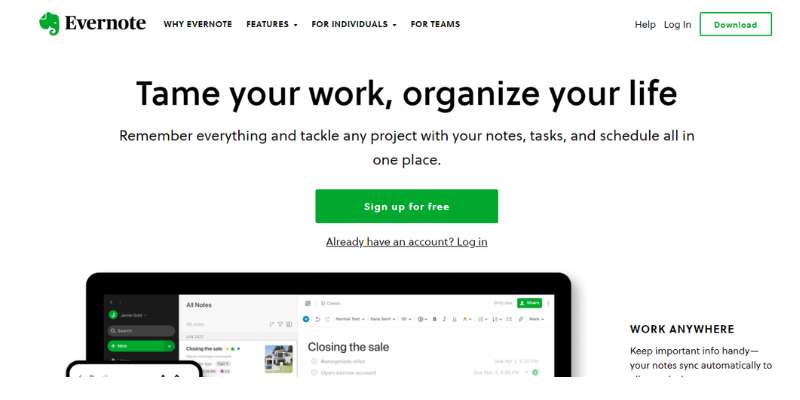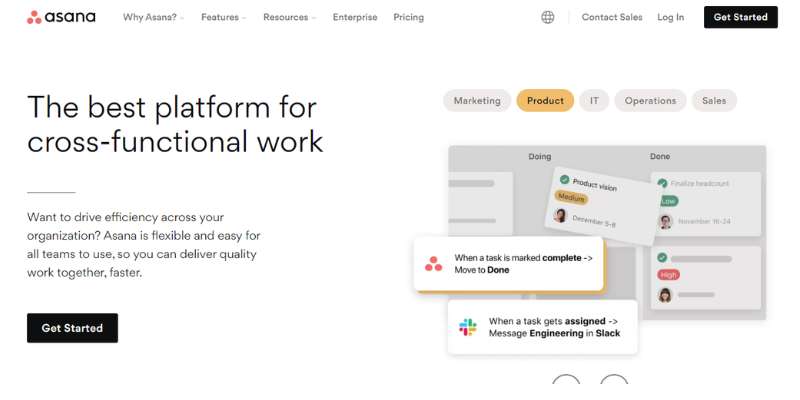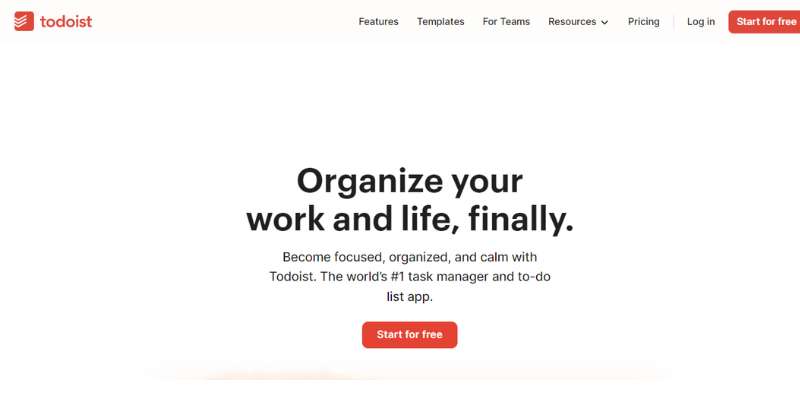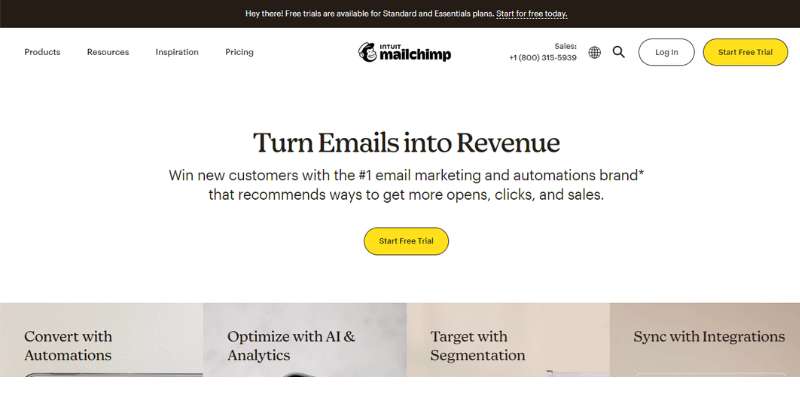Imagine launching your dream venture, only to find yourself lost in a sea of tools, each promising the moon.
Here’s the truth: In the adrenaline-pumped race to startup stardom, the right set of tools isn’t just helpful; it’s your roadmap to making it big.
Diving into the entrepreneurial deep end requires more than just passion and a killer idea.
It needs a sturdy scaffold of technologies—CRM systems, practical project management apps, and nimble marketing platforms—crafted to elevate your newborn business into the stratosphere.
We’ve all heard the tales of startups skyrocketing to success; what often goes unsung is their arsenal of behind-the-scenes gadgets and gears.
In this guide, I’ll walk you through the absolute must-haves, the entrepreneur resources that’ll power-charge your growth—from seedling to titan.
You’ll learn how to harness financial management software, stitch seamless workflows with collaboration tools, and slice through the market noise with strategic customer relationship management.
Expect to emerge with clarity: A well-outlined cache of tools for startups that promise to streamline your climb up the treacherous ladder of business triumph.
Why should you use tools for startups?
Here are some of the benefits you should keep in mind:
- Inexpensive: Some startup tools are very affordable compared to hiring a professional agency.
- Productive: Tools for startups focus on communication and effective task management. You can use them to set your goals and manage your projects. More importantly, these tools help prioritize and measure accomplishment.
- Time-efficient: Every startup owner knows how important time management is. Startup tools save you time and keep your startup well-organized.
There are all types of tools for startups and small businesses that you can consider. Such startup tools help minimize your expenses and save more time. Choosing the best tools, however, takes lots of research. One of the reasons is that ‘best’ means something different to every business.
While it is true that all productivity tools bring value, only some of them sustain that value as your business grows. You need startup tools that will scale to your company as it grows. To make this decision a bit easier, we’ve listed the best tools for startups you should consider. The tools are organized into the following 10 categories:
- Startup tools for ideation
- Startup tools for project management
- Startup tools for learning
- Startup tools for marketing
- Startup tools for sales
- Startup tools for finance management
- Startup tools for customer service and CRM
- Startup tools for design and development
- Startup tools for data analytics
- Social tools
Category: Ideation
Ideation is the most difficult, but also most rewarding phase in startup development. At this stage, you have determined what your business does and which products you will sell, but you need clarity on how to do this. There are many tools for startups that help with ideation. They won’t guide you through the entire process, but they will provide a clear direction on how you should proceed.
It comes without saying, but keeping track of your ideas and prospects can be very difficult. Luckily, there are awesome ideation startup tools that can help you. Let’s check them out:
Miro

Miro is a whiteboard tool for brainstorming and communication. The digital platform allows multiple participants to exchange ideas and collaborate, and do so with sticky notes. Miro also lets you upload content and create prototypes and spreadsheets.
These are the most prominent features:
- Live visual collaboration: You can work with your team in real-time and keep the flow of ideas ongoing
- Text, video, and voice chat: Miro improves communication among team members. They can always go back to a particular page and add updates or reports.
- Freehand drawings: Miro helps you visually showcase your concepts, namely with freehand drawings.
- Admin controls: You can assume an admin role and decide who can do what on the Miro sheets. This is the perfect feature for brainstorming.
- Working in the cloud: Miro is entirely cloud-based, meaning that you don’t have to download anything. You can work at your own pace, and all your updates will be saved in the cloud.
Idea Box

With Idea Box, you can simplify your innovation management process in no time. The free tool increases engagement and keeps the team motivated and involved in the ideation process. You will appreciate its interactive functionalities and user-friendly interface.
With Idea Box, you can categorize and evaluate ideas using a drag-and-drop function. This way, you can keep up with the deadlines and manage your ideas more efficiently.
Mindmeister

Mindmeister specializes in mind mapping and brainstorming. It will help you and your team come up with even better ideas for your business. The application also enhances collaboration among team players. We particularly like how it turns all ideas into great and workable slideshows.
The basic Mindmeister plan is free, but you can also subscribe to their premium plan. The subscription will grant access to some amazing teamwork features for as little as $4.99 per month. Give it a try.
Category: Project management tools
Project management tools help organize and manage projects more productively. Every startup can benefit from these tools, especially at an early stage when you are still examining your product market fit. You need a scalable project management tool that will grow in line with your business, and handle all changes and task arrangements. If you don’t have the right tool, things can easily go out of control.
A good project management tool is also a productivity tool that measures and examines results. We’ve selected a few user-friendly tools that you should consider:
Trello

It is hard to believe, but Trello is a free project management tool. Both startups and established enterprises use it to stay organized and deliver their projects on time.
Your team will love Trello, as the tool is very easy to navigate. It takes no time to input projects and divide them into tasks, set due dates, and assign the tasks to the right people. Trello even allows you to tag team members and invite them to collaborate on a project.
Evernote

Evernote is an absolute leader when it comes to productivity tools. You can use it to bookmark articles, save webpages, and clip PDFs to the app. Businesses get a pre-made template where they can enter the details of their projects and their research reports.
Evernote offers all classic project management features. Among them are task management, document scanning, integrations, and more.
Asana

Asana will streamline your projects with boards, lists, and one-step delegation. The platform is automated and detects repetitive tasks that can be removed. If you have a startup, you can use their free plan and involve up to 15 team members.
Asana is one of the most successful tools for startups and a good reason. You can manage any project beginning-to-end, and assign and track any task. The platform offers easy and quick reporting that tracks your progress and keeps everyone on the same page.
Todoist

If you enjoy making to-do lists, Todoist is the right tool for you. The app lets you draft lists for literally anything, and organize all projects and tasks under one roof. The tool will help you be more productive and delegate tasks more successfully. What you will like the most is how easy to use this platform is.
ProofHub

ProofHub is an end-to-end collaboration platform for startups. More than 85K businesses rely on it for project management, even though a free version is not available. You can choose one of the following plans: Essential ($45 per month) and Control (custom pricing). This makes ProofHub more expensive in comparison to similar project management tools.
Category: Learning tools
There are many tools for startups that help teams grow and develop their skills. As a startup owner, you will need to invest in one of these tools to provide your team with knowledge and new skills. We’ve selected some of the best learning tools for startups you could consider.
Coursera

Coursera is one of the best-known online learning platforms in the world. With Coursera, your team members can access any online course they want from any location. At the end of each program, they can obtain certificates from prominent companies and institutes.
With such functionalities, Coursera helps your team develop its skills. It is the best platform for them to obtain qualifications and improve their careers.
YouTube

Indeed, there is much more to YouTube than fun videos. The platform is an absolute leader in its industry, as it offers millions of videos that can be accessed anywhere in the world.
YouTube also offers plenty of educational content, including webinars and tutorials. The best part about it is that all these videos are available for free.
Udemy

Udemy is very similar to Coursera. It is a massive online learning platform that offers all sorts of courses and training. The coursework is divided into lessons and modules to facilitate the learning experience. Users get to learn with interactive video content and take assessment tests for each course they complete.
At the moment, Udemy is used in over 180 countries and is available in 65 languages. It is also the among the favorite tools for startups and the main training assets of thousands of companies.
The enterprise plan is called Udemy for Business and it is custom-priced. The development and learning platform is an excellent investment for your team, as it provides access to over 5,000 different courses.
edX

edX is a free tool. but it still provides access to some of the best advancement courses for every team. The global non-profit platform helps teams acquire new skills and advance in their careers.
Category: Marketing tools
A good marketing strategy is important for every business, especially when it comes to startups. Young businesses need to manage all their marketing processes under one roof, so they make optimum use of their investment. The marketing tools should therefore track, analyze, and measure all marketing efforts.
Here come our top picks:
Mailchimp

Mailchimp is one of the best-known marketing tools in the world. The tool is designed for email automation and keeps all your lead information in one place. Many startups rely on it to launch their marketing strategy and to build their customer database.
The emailing service is reasonably priced, and yet very reliable. Thanks to it, digital marketers can distribute tailored emails to as many inboxes as they need.
Sumo

Sumo is among the best marketing tools you can obtain for free to manage your marketing campaigns. Similarly to MailChimp, Sumo collects lead information and captures email addresses. It is very flexible and offers dozens of welcome pages, popups, and smart bars.
It is the perfect tool for e-commerce businesses looking to boost conversions and generate sales. Sumo even measures the success of your campaigns and helps develop better marketing strategies. Your team will love how intuitive and easy to use this tool is.
You can also upgrade to the paid version and get access to even more functionalities. Yet, we recommend you start with the premium plan.
Optimizely

Optimizely certainly deserves a place on the list of best tools for startups. It will help you standardize your marketing experience on different channels, and help generate more leads.
It is a great tool to pair with Google’s Core Web Vitals platform, so you can prioritize websites based on DX.
Category: Sales tools
There are many sales tools for startups you should consider for your toolkit. Tools like this optimize your sales efforts and help you turn prospects into customers. The best startup tools will also nurture customer relationships, and ensure you maintain momentum.
These are the best sales tools for startups:
Close CRM

Close is a sales-specific CRM tool designed for startups. It tracks every touchpoint with a potential lead and develops a visual timeline for the team to track their progress. With Close CRM, you can monitor the stage of each lead and gather the data needed to move the lead forward.
Clearbit

Your sales team will love Clearbit! The B2B marketing platform specializes in outreach products and prospecting. The platform tracks your Gmail conversations and displays information right next to them. In such a way, it helps you generate leads and improve your customer relationships.
LinkedIn Sales Navigator

You may not know this, but LinkedIn also belongs to the best startup tools for sales management. Their Sales Navigator can improve your sales efforts in many different ways. This makes it the most valuable Google asset you can have in your portfolio.
Sales Navigator offers unparalleled sales network visibility. It will improve both your sales campaigns and marketing campaigns, and track and analyze your selling results.
Category: Finance Tools for startups
Startups also need accounting software that monitors the movement of their money. Luckily, many modern accounting tools take care of these tasks. As a startup, you can even acquire a tool that helps you raise funds.
Here come the best tools for startups:
OnPay

OnPay payment processing software is perfect for startups. You get a comprehensive platform that manages all recurring payments. You can also use it to create customized receipts and invoices.
PayPal

PayPal is the world’s most acclaimed and prominent payment gateway. This makes it a must for every startup out there.
As a prospective seller, PayPal will help you facilitate payments for your customers. PayPal is trusted by more than 400 million users in the world and lets you send and receive money almost everywhere in the world.
Stripe

As we mentioned, most businesses worldwide support Paypal payments. Still, the list of best startup tools for payment processing doesn’t end here.
Stripe, for instance, is more cost-effective than PayPal. It is also considered more streamlined and secure, as no information is stored on external servers. Keep it in the loop if you are looking to save some costs!
Fyle

Let us introduce another very modern startup tool! Fyle gives you absolute control over business expenses. It helps the finance team assess company spending on different projects and by different departments. All budgets are managed on a single dashboard and accessible online. In such a way, startups leverage their financial potential and make smarter financial decisions.
Foundersuite

Coming back to the topic of raising funds, put Foundersuite on your list. This investor updater tool can help you attract capital in no time, and manage your finances in the background. To make matters even better, Foundersuite has multiple CRM functionalities for you to manage the investor funnel. It also maintains a database of venture capitalists and creates monthly progress reports with its Updater tools.
Category: Customer support tools and CRM
In this category, we will check some of the best CRM tools for startups. All of these tools can help you build lasting customer relationships and improve interactions.
Let’s check them out:
Intercom

Intercom is without a doubt one of the best startup tools on the market. This tool helps you create more personalized customer relationships based on standardized messaging. Using Intercom, you can message leads on multiple platforms, including your website, app, or email program. In addition, you get access to event-triggered emails, drip campaigns, and much more.
Unfortunately, Intercom doesn’t have a free plan. Startups can get access to the tool for only $49 per month.
Zendesk

This customer-support service is based entirely on the cloud. It facilitates and improves customer service, as it is tailored to meet your customers’ needs. It also comes with collaboration features that keep the sales team aligned, and helps measure customer engagement in the long run.
CRM by Hubspot

Hubspot also offers many great tools for startups. Their CRM, for instance, can centralize your customer database and let you log all customer interactions in one place. By doing so, you will enable the platform to extract web data on prospective customers and provide you with better insights.
Here are the features you should consider:
- Custom views
- A board for all your projects and tasks
- End-to-end synchronization with Hubspot Marketing
- Easy Drag and Drop Communicator
- CRM details
- Email connections
- Scheduling and tracking
- Templates
Hubspot CRM comes both in a free and a paid package. We recommend you check their free plan first, as it is the most adequate one for startups. As your business grows, you can consider the advanced features of its premium plans.
Category: Development and design tools for startups
CRM and email marketing tools are great, but these are not everything a startup needs. New businesses rely on other tools to make optimum use of their creativity, such as development and design tools. In this way, they can present their ideas better and develop more appealing products.
If you also prepare content for your customers, you should consider SEO tools for better search engine optimization.
Here are some of the best startup tools for development and design:
Canva

Canva supports your business ideas with professional templates. You can design any type of custom graphic for your customers, and do so without advanced skills.
The interface is very intuitive. You just need to select the right template, or even create one with their drag-and-drop functionality.
Visme

Visme is another great tool for your business operation. It is a startup platform where you can create all sorts of visual content. Brands use it to design their assets, sales presentations, and marketing materials. Best of all, you can bring in the branding materials you already have, such as your colors, logos, templates, and more.
Visme gives you access to thousands of visualization tools, such as icons, illustrations, and images. You can also display data in professional graphics, and spice up any creation you have. Both your team and your customers will appreciate this.
Squarespace

If a business does not exist online, it may as well not exist at all. Online presence is only gaining momentum, and it is critical to a newly established business. Luckily, there are many tools for startups that help create a successful online presence.
Squarespace, for instance, helps you design very appealing and user-friendly websites and blogs. It is an award-winning platform with reasonable pricing and a two-week free trial. If you upgrade to their premium version, you will also get access to advanced marketing features.
The branch or industry won’t matter, as Squarespace serves all startups. You can use it to schedule appointments, sell or market your goods, and attractively deliver information. The available plans vary between $12 and $40 per month, depending on your exact needs.
Category: Social tools for startups
We already discussed how important it is to have a good email marketing tool. And yet, in a time where all prospects have multiple social media accounts, you should also focus on social presence.
There are multiple tools for startups that help provide services online and monitor engagement. The best among them enhance team collaboration and help you connect in and out of the organization.
Here comes a list of where you can pick your favorite startup tool:
Slack

Slack is a tool for customer and team collaboration. Think of it as a free-of-charge messaging app you can use to reach potential customers. The tool is highly recommended for ease of use and straightforwardness.
Zoom

After the Corona pandemic, it is hard to think of a team that didn’t use Zoom. The prominent communication platform keeps sales teams and marketing teams on top of their tasks. Thus, a list like this would not be complete without Zoom.
This great tool specializes in audio and video conferencing. You can easily get the free version of the tool and have it enhance team productivity at no cost. Zoom can also be used on mobile devices, and has a very intuitive user interface.
With Zoom’s free plan you will get unlimited meetings for up to 100 individuals. Note, however, that participation in these meetings is limited to 40 minutes.
Buffer

Buffer is another great startup tool for social engagement. You can use it to manage all social accounts and interactions on a single dashboard. Buffer boosts team collaboration with many unique features. Scheduled posts and key performance indicators are only a few examples. Other Google tools specialize in the same things, but Buffer has a more attractive pricing scheme.
A free plan is not available, but you will be offered a 14-days free trial where you can check the features. Paid plans start at $15 per month (for 8 accounts), and you can always downgrade to a more affordable plan.

LinkedIn is the leader among communication tools for professionals. The app is designed for networking, and it is free of charge for professionals looking to connect.
As a business owner, however, you should explore more LinkedIn features and build worldwide communities. LinkedIn helps you meet fellow entrepreneurs, hire new employees, and manage customer interactions.
Category: Data analytic tools for startups
So far, we’ve seen how important video conferencing tools and team collaboration assets are to a starting business. But how useful can data be if it is not analyzed?
Startups also need tools that can monitor data streams and identify trends and patterns. In such a way, you will know which are of your business brings the most profits, and which one needs improvement. You get valuable insights into your business operations and build better customer relationships.
The best tools in this category won’t only provide in-depth analysis but also track user behavior. In such a way, they help bring more customers to any small business.
Data analytic tools for startups have many benefits. You can use them to plan your budget, improve your offering, or invest in ideas that are likely to succeed. By doing so, you rely on actual customer feedback and respond to actual needs and expectations.
These are the analytic tools that can improve your business operations:
Google Analytics

Google Analytics is the classic choice of small businesses. It monitors the traffic you get on your website and indicates which practices work the best for you. Also, all analytic tools offered by Google help improve your marketing campaigns. Ultimately, they help you turn more leads into customers.
Google Analytics will continuously track the evaluation of your data and the success of your strategies. Consequently, you will be able to plan your budget better and invest it in the right areas.
Brand24

Brand24, on the other hand, is a social media management platform that monitors your performance. Thanks to its key performance indicators, you can analyze and understand conversions. Unlike other analytics tools, Brand24 tracks your performance throughout your industry. It gathers all social mentions and comments on the internet and identifies areas of improvement.
Brand 24 is the leader among analytics tools that provide detailed customer insights. The platform identifies the best sales leads and helps you engage them. At the same time, it follows what the competition is doing, and suggests what you can do better.
There are 4 paid plans to choose from, starting at $39 per month. All plans come with a 14-days free trial.
FAQ On Tools For Startups
What are the Essential Tools Every Startup Needs?
Think stable. Project management apps (like Asana or Trello), an intuitive CRM system (think Salesforce), and seamless collaboration tools (Slack’s your friend).
These form your startup’s backbone, letting you organize chaos into a rhythm of productivity that sings.
How Do Tools for Startups Propel Business Growth?
They’re like fuel. Lean on analytical tools to decode customer behavior. Dive deep with marketing platforms to reach your audience.
A simple combo of financial management software and productivity apps can gear you towards innovation, pushing growth on a scalable, measurable path.
What Are Cost-Effective Startup Tools for Bootstrapped Businesses?
Scrappy is savvy. Look for multifunctional solutions like Google Workspace for communication and documents.
Airtable, a mix of database and spreadsheet, is gold. Freemium models from the likes of MailChimp provide robust email marketing services without the initial cost sting.
Can You Recommend Any Free or Open-Source Tools for Startups?
Sure thing! Trello offers killer project tracking without costing a dime. Need design help? Canva can turn anyone into a designer.
For a CRM, try HubSpot. And hey, don’t forget Google Analytics—key for understanding your web traffic.
How Important Are CRM Tools for Startups?
Vital, like oxygen. You’ve got customers; now, make them fall in love. CRM tools organize customer info, streamline communication, and automate sales tasks.
Plus, they offer insights into customer behavior. We’re talking a long-term relationship secret weapon here.
What Tools Do Startups Use for Effective Team Collaboration?
Distance doesn’t matter with the right tools. Think Slack for chatter, Zoom for face-time, and Google Drive or Dropbox for file-sharing.
It’s about bridging gaps, syncing progress, and fostering team spirit in the cloud.
Which Marketing Tools Are Indispensable for Startups?
You can’t miss social media marketing – platforms like Hootsuite keep you connected to your audience.
SEO can’t be overlooked either, so tools like Ahrefs or SEMRush refine your online presence. Email campaigns? MailChimp or ConvertKit are your go-to.
How Do Project Management Tools Impact Startup Efficiency?
It’s like herding cats without the hassle. Track progress, nail deadlines, and wave goodbye to confusion.
Tools like Asana and Monday.com help prioritize tasks, visualize projects, and keep everyone on the same beat. Efficiency shoots up. Stress levels? Down.
Are There Tools to Aid Startups with Financial Management?
Absolutely. QuickBooks for bookkeeping, Stripe for payments, and Gusto for payroll make a daunting task approachable.
These financial management tools don’t just track your dollars; they ensure compliance and keep the cash flowing right.
Should Startups Invest in Legal Tools?
Legal hurdles can trip you up. Tools like LegalZoom or Rocket Lawyer simplify entity formation, trademarks, even contracts.
It’s like having a legal ace up your sleeve – without the hefty fees. It’s an investment that guards you against potential legal woes down the line.
Conclusion
So here we are, at the crossroads where tight budgets meet boundless ambition. We’ve journeyed through an arsenal of tools for startups, exploring everything from CRM systems for building enduring customer relationships to collaboration tools that make team unity a reality regardless of geography.
Wrapping up, think of these tools as your startup’s compass, guiding you through growth strategies and uncharted market dynamics. Whether you’ve leveraged financial management software to balance the books or wielded marketing platforms to amplify your voice, remember: the goal was to work smarter, not harder.
- Your startup’s lifeline? Customer relationship management.
- Efficiency’s best friend? Project management apps.
- Growth’s catalyst? Analytical tools.
From bootstrapped to funded, solo founder to bustling teams, these instruments are built to scale dreams into enterprises. Clutch them close, and watch the horizon. It’s broadening, with your startup written against it in bold strokes. Success is a craft – and with the right tools, mastered.
If you enjoyed reading this article about tools for startups, you should check these also:





